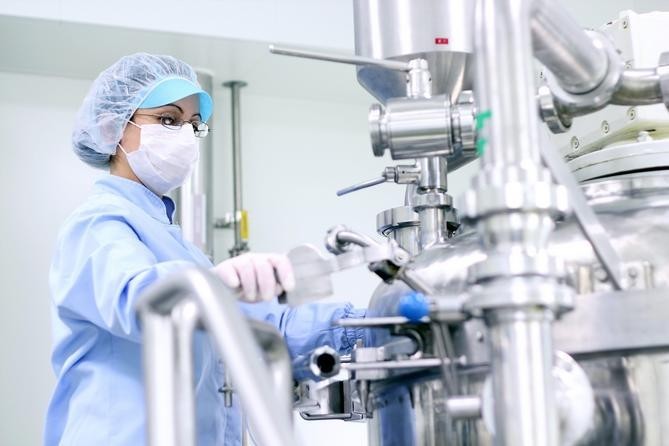Pharmaceutical production is a complex process and one that requires strict controls. To protect the quality of the final product, it is necessary to maintain appropriate production conditions at all times. Stainless steel manways, as the main component of a significant portion of pharmaceutical tanks, serve an important function – both for the process itself (for example, the addition of ingredients during production) and in emergency situations (the ability to make repairs to the device through the inspection opening).

Manways for pharmacy are characterised by high resistance to chemical agents and resistance to the effects of other external factors. Thus, the most commonly chosen steel grade for manways installed in pharmaceutical tanks is AISI 316 (1.4401) and AISI 316L (1.4404).
Corrosion resistance for pharmaceutical manways is also an important element in the context of manway closing. The predominant method of closing pharmaceutical manways is to press the cover with handwheels. These are most often made of stainless steel to make them as easy to clean as possible and to ensure the durability of their use.
However, the most important element in the context of pharmaceutical manways is their surface finish. Both the cover and the manway frame must undergo a polishing or electropolishing process to reduce the surface roughness (Ra) as much as possible. This limits the potential for bacteria and contaminants to settle in small crevices on the surface of the manway, which could adversely affect the final quality of the product stored in the tank.
In general, manways used in pharmacy have:
Although it is not a standard option, it is also recommended for pharmaceutical manways to smooth the welds of external components (for example: handwheel mounts, hinges and similar components). This has a positive effect not only on the aesthetic qualities of the manway, but also on its hygienic value.
In pharmaceutical manufacturing, some of the most commonly used types of manways are pressure round manways. They are usually part of reactors or other pharmaceutical equipment operating under pressure. An extremely important aspect in the context of pressure pharmaceutical manways is their tightness in the operating pressure environment present in the tank. This is because the absence of this basic feature of the manway can cause fugitive emissions of active pharmaceutical ingredients or other substances used in the manufacturing process.
Pressure round manways used in pharmaceuticals are characterised not only by an outer surface with sufficiently low roughness, but also by the construction of the cover itself. Pharmacy pressure manways usually have a smooth, convex cover that prevents water and contaminants from settling on its surface. What's more – such a cover design significantly facilitates cleaning and disinfection, in order to prevent unwanted microorganisms from entering the environment in which the manway functions (aseptic).
Elastomers for pharmaceutical manways ensure tightness between the cover and the manway frame welded to the tank. Pharmaceutical gaskets are manufactured from materials approved by institutions such as the FDA (Food & Drug Administration). Among the most commonly used are: EPDM, silicone, NBR, Viton. In some cases, Teflon™ FEP gaskets are also used.
Hybrid gaskets have also gained popularity among pharmaceutical manways, which are usually manufactured from two materials, for example, FEP+silicone (silicone core coated with FEP). Solutions of this type allow combining the characteristics of both materials (for example, temperature resistance and chemical resistance to a specific medium).
Selecting the correct manway gasket in the pharmaceutical industry is a key issue, as gasket failure can cause product contamination, plant downtime and safety problems. Accordingly, manway gaskets play an important role in the safe and efficient operation of pharmaceutical plants.
We use cookies